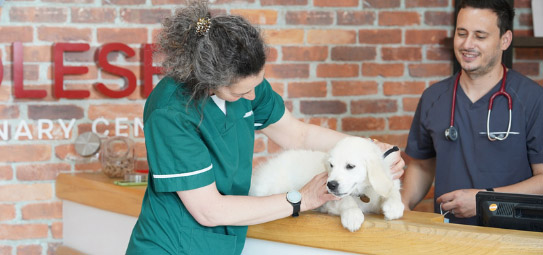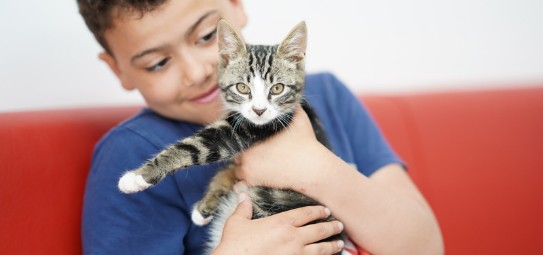
Keep your guinea pig healthy with Claygate Vets’ meal planner
February 21, 2023
As a small animal, it’s important that your guinea pig gets the right balance of nutrients to stay in good condition. According to Claygate Vets’ head nurse, their ideal diet should be high in fibre, low in fat, and include a variety of hay, fresh vegetables and fruits, plus a small quantity of fortified pellets.
To help you remember those basics, we have created a handy sheet for you to download and keep.
Download the diet
What’s in the ideal Guinea pig diet?
A guinea pig’s diet is a big part of keeping them healthy and happy – our nursing team say it’s important to always think Hay & Vegetables…
Hay is the most important part of a guinea pig’s diet, as it provides the bulk of their nutritional needs. It should make up around 80-85% of their diet and should be fresh and of good quality. Hay also helps to keep their teeth in good condition, as well as providing much-needed fibre. Timothy Hay is one of the most popular types of hay for guinea pigs, as it is high in fibre and low in calcium. You should be able to get Timothy Hay from most pet shops in Surrey or from some online retailers.
Fresh vegetables and fruits should make up the other 15-20% of a guinea pig’s diet. These should be given in small amounts daily and should be washed and chopped into small pieces. Popular vegetables and fruits include carrots, bell peppers, kale, apples, and strawberries. Not all fruits and vegetables are safe for guinea pigs though so our Claygate veterinary nurses recommend that you should search online before giving your pet something new.
Can I feed my guinea pig pellets?
In a word, yes! A small amount of high-quality fortified pellets can be given. These should make up no more than 10% of their total diet and must be free from artificial colours and flavours. Do not ever feed your guinea pigs rabbit pellets; this is dangerous and will make them ill.
What about hydration?
Just like all pets, hydration is a key part of a guinea pig’s overall health and wellbeing. If you asked our Claygate nurses, they’d tell you that while water bottles are generally considered the most effective way to provide clean, fresh water to guinea pigs, water bowls can also be a suitable option for certain situations. For example, if your guinea pig is elderly, injured, or simply refuses to use a water bottle, a water bowl may be a safer and more convenient choice. It is important to regularly clean and refill the bottle or bowl to ensure that your guinea pig always has access to clean water. Additionally, it is a good idea to observe your guinea pig’s drinking habits to ensure they are adequately hydrated and to make any necessary adjustments to their watering system.
In summary
The ideal diet for a guinea pig should be high in fibre, low in fat, and should include hay, fresh vegetables and fruits, and a small quantity of fortified pellets – and remember to make sure they’re hydrating! Download our Menu to keep as a reminder and your guinea pig will have a good nutritional foundation to help them stay healthy and happy for years to come.
Get our guinea pig menu
If you would like any more advice on guinea pig nutrition and health, give our Claygate team a call on 01372 460107.





